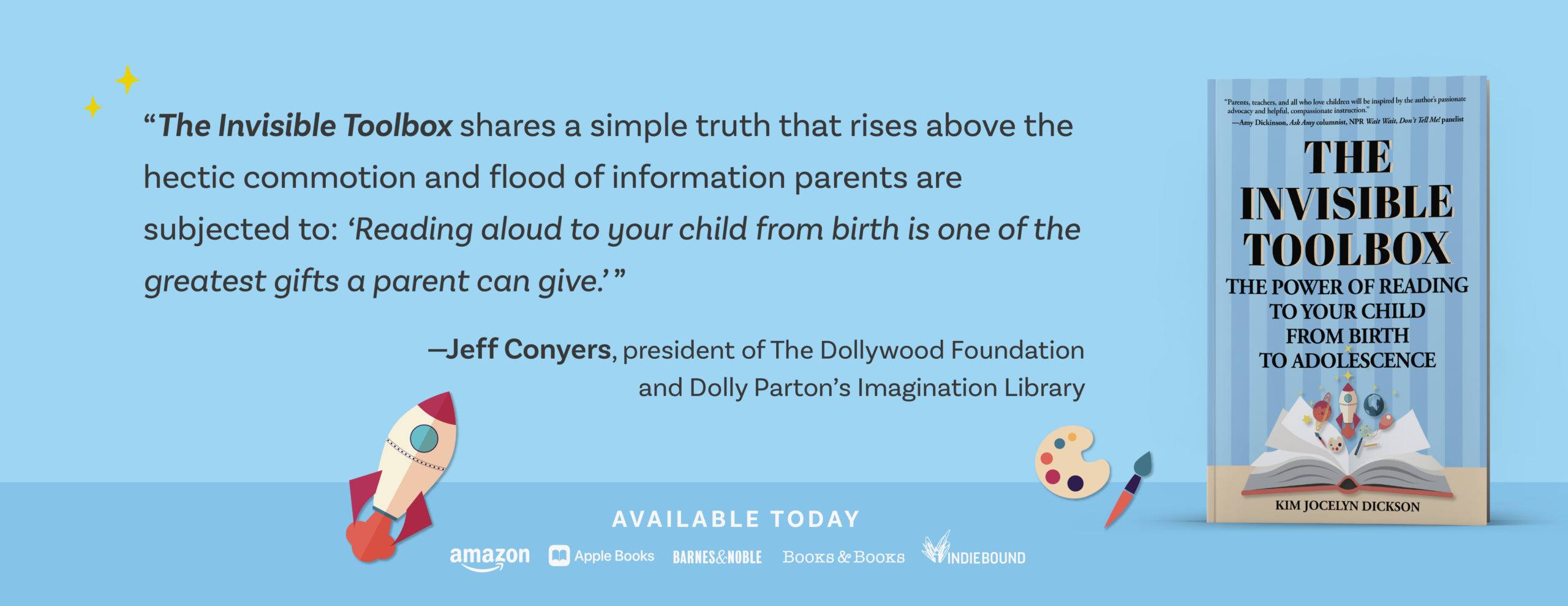 The benefits a child gains from being read aloud to are many, and they contribute directly to success in school.
The benefits a child gains from being read aloud to are many, and they contribute directly to success in school.
A child who has been read to regularly from birth arrives on day one of kindergarten with an invisible toolbox overflowing with the pre-literacy skills that are the foundation for all learning. They include not only the number one predictor of school success— a rich vocabulary—but many other essential understandings. Check out Parts I and II and then add these to the list:
They gain the ‘background of experiences’ necessary for understanding what they read in school.
Stories expand the boundaries of a child’s world in the best possible way. The greater the exposure to stories and ideas from outside their immediate experience, the better children are able to understand what they read in school. The reading a child eventually does in school is filled with countless references that will fall outside her natural orbit, and her degree of familiarity with them will determine her ability to understand what she reads.
They absorb how stories work on an unconscious level.
Stories have a beginning, a middle, and an end. There is a protagonist, a problem, a struggle, and a resolution. These are understandings that a young child will generally not consciously express, but they will understand intuitively that this is what constitutes a story. This unconscious familiarity will become very apparent as a child moves into writing in school.
They possess the tools to become effective writers.
Children who have been read to not only gain a greater vocabulary for expressing themselves in writing, they develop an innate grasp of how sentences are formed and have an easier time constructing them. Just as they have greater expressive fluency orally, their writing is also more fluent than that of their non-reading peers. Through hearing many stories read aloud from a young age, they have absorbed the structural rhythm that stories possess. They will draw on this to write their own more easily than their peers who have not been immersed in stories.
The simple act of sharing a daily read-aloud with a child will fill his invisible toolbox to overflowing with a rich vocabulary, an inherent understanding of the pleasure of books, knowledge of the way books and stories function, an ability to attend to what is important, and familiarity with expressive reading and the rhythm of language. These are the essential tools of literacy that are the foundation for all learning in school.


 As the chasm between rich and poor continues to grow and the middle class shrinks in the United States, we look to education as the primary tool for rectifying inequity across the socio-economic classes and leveling the economic playing field. Politicians stump for education reform and pass legislation. Head Start. No Child Left Behind. Common Core. Teachers are held responsible for student achievement and often vilified and scapegoated by the media when test scores don’t improve. Cyclically, educational reform swings like a pendulum between the poles of ‘meeting children where they are’ and ‘raising the bar’. The conversation is ongoing and shifts nearly every decade but there is one constant, and that is the absence of discussion about what happens before a child arrives at school.
As the chasm between rich and poor continues to grow and the middle class shrinks in the United States, we look to education as the primary tool for rectifying inequity across the socio-economic classes and leveling the economic playing field. Politicians stump for education reform and pass legislation. Head Start. No Child Left Behind. Common Core. Teachers are held responsible for student achievement and often vilified and scapegoated by the media when test scores don’t improve. Cyclically, educational reform swings like a pendulum between the poles of ‘meeting children where they are’ and ‘raising the bar’. The conversation is ongoing and shifts nearly every decade but there is one constant, and that is the absence of discussion about what happens before a child arrives at school.